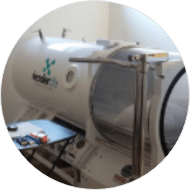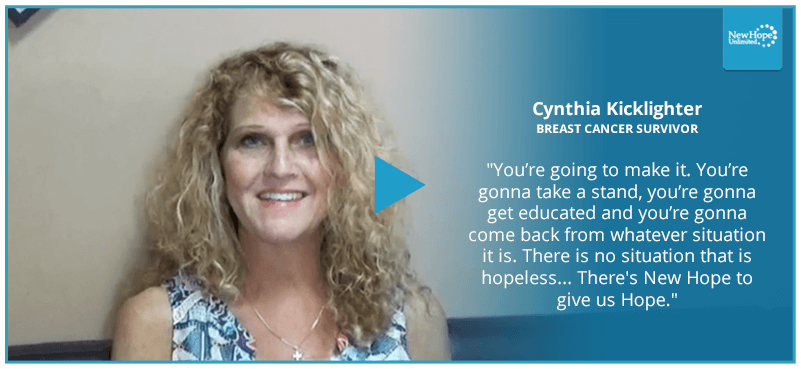Outstanding Cancer Treatment Results

Why Choose New Hope for Alternative Cancer Treatments
 Advanced Cancer Treatments
Advanced Cancer Treatments
 Top-Rated Physicians
Top-Rated Physicians
 Personal Care
Personal Care
 Patient Satisfaction
Patient Satisfaction
What Is Colon Cancer?
Colon cancer is the second leading cause of cancer death among men and women. This form of cancer begins in the colon and rectum, which are neighboring regions of the large intestine. Colon cancer, sometimes referred to as colorectal cancer, may spread through:
- extension through the bowel wall
- distribution by the circulation through the bloodstream (hematogenous)
- regional lymph node metastases
- surrounding nerve or nerves (perineural)
- within the wall of a nearby organ (intramural)
The colon is the part of the large intestine that extends from the cecum to the rectum. It can be described as a long coiling, looping tube-like organ that removes water from digested food and solid waste material called feces or stool. The average colon is approximately six feet long.
Polyps in the Colon or Rectum
Most cancers in the colon begin as a growth in the inner lining of the colon or rectum. These growths called polyps can become carcinogenic after many years. The possibility of a polyp transforming into cancer depends on the type of polyp it is, including these two main types:
Adenomatous polyps (adenomas):
Adenomas are considered a precancerous condition because these polyps sometimes mutate into cancer.
Hyperplastic polyps and inflammatory polyps:
These growths are very common but are not cancerous in most cases.
Dysplasia:
This precancerous condition occurs when the colon lining or polyps appear to have abnormalities.
Additional factors that allow a polyp to contain cancer or increase someone’s risk of developing colorectal cancer are when a polyp larger than one centimeter is found, or when more than two polyps are found.
Warning Signs or Symptoms
One in 22 men and one in 24 women will be diagnosed with colon cancer in their lifetime, and many experience no signs or symptoms during the early stages of the disease. When symptoms do appear, they are likely to vary, depending on the cancer’s size and location in the large intestine. Early diagnosis of colon cancer will depend on whether or not you conform to routine checkups and screenings. Some symptoms of colon cancer include:
- A change in your bowel habits, including diarrhea, constipation, or a stark difference in the consistency of your stool, which lasts longer than four weeks
- Rectal bleeding or blood in the stool
- A feeling of fullness or that you cannot empty your bowel completely
- Persistent abdominal discomforts, such as gas, bloating, cramps, or pain
- Weakness or fatigue
- Weight loss for unknown reasons
- A deficiency in red blood cells (anemia)

It is crucial to note that some of the symptoms mentioned can also indicate other conditions such as infections, hemorrhoids, or irritable bowel syndrome. If you experience any of these signs, it is best to seek medical advice to diagnose your condition and determine the appropriate treatment.
How to Prevent Colon Cancer
Here’s the good news about colorectal cancer: There are ways to prevent it. Though the direct cause of colon or rectal cancer is unknown, a staggering 75 percent of all cases could be avoided by making changes to your lifestyle, including:
Get tested for colon cancer
Those with an average risk of colon cancer should get screened beginning at age 50. But people with an increased risk, such as those with a personal or family history of colon cancer, should consider screening sooner. Many screening options exist. Discuss your options with your healthcare provider, and together, you can determine which tests are suited for you.
Eat plenty of vegetables, fruits, and whole grains
A diet rich in a colorful array of fruits, veggies, and grains has been linked with a decreased risk of colon cancer. Eat less red meat (beef and pork) and processed meats (hot dogs, luncheon meats, and canned goods), which have been linked with an increased risk of colorectal cancer.
Drink alcohol in moderation
If you want to drink alcohol, make sure to limit your consumption to no more than two drinks a day for men and one for women.
Stop smoking
Long-term smokers are scientifically proven to be more likely than non-smokers to develop and die from colon cancer. If you want to quit smoking, talk to your doctor about methods that may work in fighting your yearning for nicotine.
Exercise regularly
Being physically inactive increases your risk of colorectal cancer. Do your best to get at least 30 minutes of exercise on most days of the week. Also, consult your doctor before starting any new exercise program.
Maintain a healthy weight
If you are of relatively healthy weight, work to it by combining a healthy diet with regular exercise. If you need to lose weight, make it a priority to ask your doctor about healthy ways to achieve weight loss. Aim to lose weight slowly by reducing the calories you eat and increasing the amount of exercise you get.
Colon Cancer Diagnostic Process
Tests and procedures used to diagnose colon cancer may include:
Medical history and physical exam
Genetic information plays a crucial role in cancer development. A complete analysis of your medical history is necessary to evaluate your symptoms and risk factors. During the physical exam, a digital rectal exam may be performed to determine the presence of tumors in the rectum. Depending on the results, you may be prescribed to undergo further tests or referred to another specialist.
Blood Test
Your blood can help determine your overall health and identify a chemical sometimes produced by colon cancers, including carcinoembryonic antigen or CEA.
Colonoscopy
Using a colonoscope, a thin tube equipped with a CCD camera, the large bowel, and the distal part of the small bowel can be examined extensively.
Biopsy
If the colonoscopy detects any abnormal masses in the colon, a biopsy may follow to determine if they are carcinogenic. A sample tissue will be collected and evaluated to confirm the presence of cancer.
Barium Enema
By injecting a substance called barium in the rectum, this method can produce an x-ray of the colon. Barium can coat the colon to create an image or outline that will help detect any abnormalities.
Imaging tests
Imaging tests are necessary to see a detailed picture of the colon and other parts of the body, which ascertain whether cancer has spread. Imaging tests include CT scan, MRI scan, ultrasound, intravenous pyelogram, retrograde pyelogram, bone scan, and chest x-ray.
How the New Hope Medical Center Treats Colon Cancer
Cancer treatment programs may include, but are never limited to:
Anti-Tumor Intravenous Therapy (IV Therapy)
Anti-tumor intravenous therapy lets a high dose of vitamins, minerals, and antioxidants enter the bloodstream without the need to pass through the digestive tract.
Dendritic Cell Therapy
For the last three decades, dendritic cells are clinically used as cellular mediators for the therapeutic vaccination of patients with cancer and advanced diseases.
Advanced Immunotherapy
Advanced immunotherapy helps strengthen the body’s innate ability to fight cancer by restoring the immune system’s functions.
Ozone therapy
Ozone therapy cleanses and treats conditions by disinfecting the area around them. This treatment also improves the body’s absorption and use of oxygen, all while activating the immune system’s pre-cancer functions.
Hyperbaric Oxygen Therapy
It is no secret that the body will not survive with an inadequate oxygen supply. Hyperbaric oxygen therapy is a known treatment that involves breathing pure oxygen in a pressurized tube or room.
Ultraviolet Blood Irradiation Therapy (UBI)
UBI is a procedure that exposes the blood to light, which increases the body’s immune response to eliminate infections and diseases.
Far Infrared Therapy
Far infrared not only improves blood circulation in the skin, but it also alleviates pains, modulates sleep, protects against oxidative stress, and lessens inflammation.
Nutritional Guidance and Lectures
Proper nutrition is crucial to achieving excellent health, which is why it is absolutely essential when building a cancer-combating immune system.
Autologous Immunogen Therapy (AIT)
The immunogenicity of an autologous AT-2-inactivated DC vaccine has been shown to support its inherent use for therapeutic immunization of chronically infected individuals, including cancer patients.
Facilities
At New Hope Unlimited, we pride ourselves in providing superior comfort, cleanliness, and cancer care at our 8,000 square foot medical treatment center in San Luis Rio Colorado, Mexico. We worked with renowned architects and contractors to create the ideal space for recovery, which includes state-of-the-art lounge areas and spacious private in-rooms that assure the comfort of our patients and their loved ones.
To make our patients feel right at home, each private ward is equipped with high-definition U.S. television, quality bedding, and high-speed internet connection. And with proper nutrition playing a vital role in cancer recovery, New Hope Unlimited also fulfills the dietary needs of each patient using fresh, organic produce to prepare breakfasts, lunches, snacks, and dinners.
Comfort and cleanliness are also strictly implemented in our medical treatment rooms, which are equipped with the latest medical supplies and technology to provide the highest standard of care and treatment. Our medical center also has an in-house Hyperbaric Chamber, a well-established therapy for decompression sickness, exclusively available for our patients’ use.
Further, New Hope Unlimited has maintained its exceptional partnership with Hospital Migoo, a medical group comprised of certified physicians and specialists committed to our patients’ comfort and well-being.
Learn more about New Hope Unlimited’s Facilities →
Alternative Medicine Misconceptions
Several misconceptions surround complementary and alternative medicine (CAM), especially since more and more cancer patients are turning to alternative medicine, including those who have difficulty meeting the cost of conventional care. Some inaccurate information about CAM include:
Alternative Medicine is Only an AlternativeMany alternative medicine practitioners are also medical doctors, chiropractors, or other trained medical specialists. Many of these professionals work closely with MDs to coordinate care. To reap the full benefits of your cancer treatments, remember to always inform your health care providers about all therapies received from every practitioner you work with.
Alternative Medicine Doctors Never Use Conventional MedicineA credible natural doctor will never tell a cancer patient to replace prescribed medication without the consent of the original doctor. In most cases, the MD and alternative medicine practitioner are the same person. If not, they will coordinate a treatment approach that benefits the general health or well-being of the patient.
Alternative Medicine Does Not WorkLicensed health care providers will not recommend natural therapies without conducting in-depth research. They will consider scientific investigations and personal experiences to suggest protocols that work. Multiple studies have, for instance, confirmed that acupuncture is an effective treatment for various medical conditions. Also, appropriate dietary changes are perceived to promote good health and even reduce or treat some diseases, among several other alternative therapies backed up by scientific studies.
Colon Cancer Myths vs. Truths
As a member of the medical community, we have a long way to go in educating people and correcting misunderstandings about colon cancer. Here are some of the common misconceptions about the disease:
Myth: Being diagnosed with colon cancer means it is already spreading to other parts of the body.
Truth: Many patients diagnosed with colon cancer now live normal lives. The earlier the tumor is identified, the less likely it will spread to other parts of the body. Once cancer is diagnosed, cancer experts will conduct simple tests to determine if the tumor has spread and begin treatment to eliminate them.
Myth: A woman does not need a colonoscopy.
Truth: Anyone over age 50 — whether male or female — should undergo a colonoscopy every ten years. If a close relative (parents, siblings, grandparents) was previously diagnosed with colon cancer, you must consider having colonoscopies earlier in life.
Myth: If your doctor does not suggest getting screened for colon cancer, you should not get it done.
Truth: Negligence on behalf of the patient is one of the common reasons why colon cancer is detected in more advanced stages. Take full control of your health. Be proactive, do not point fingers, and do not wait for your family doctor to recommend getting a colonoscopy.
How to Cope with a Colon Cancer Diagnosis
Cancer not only affects your physical health, but it can also cause feelings of negativity such as anger, loneliness, fear, and distress. If you are struggling to cope with your colon cancer diagnosis, here are a few ideas to help you manage stress and have more control over your disease:
Hobbies are a way to take your mind off the stresses of life. You can enjoy movies and television shows, listen to music, meditate, or even indulge in something as simple as spending time with friends and family.
When exercising, your brain releases chemicals that make you happy. As long as your doctor approves, you can do light physical activities like walking, swimming, or stretching.
Bottling your feelings can develop new anxieties, and it’s hard for any person to handle cancer all alone. You can try reaching out to trusted friends and relatives or express your feelings through writing or painting.
Staying organized and busy can help you stop worrying about your disease. Being involved in your healthcare, keeping track of your appointments, and changing your lifestyle are among the things that can give you a sense of control.
Although challenging, try to look for the good in the bad, or try to be hopeful instead of thinking the worst. Focusing your energy on negative possibilities will not only bring your spirit down, but also the hopes of those who love you.
Learning as much information about your disease and treatment options can alleviate fear and anxiety. At New Hope Unlimited, we take the time to address each patient’s questions, qualms, and worries regarding colon cancer and alternative medicine.
FAQs
The procedure is relatively quick and lasts between 15 and 30 minutes. When finished, your nurse will escort you to a recovery area, where the sedation will wear off.
2. How do I prepare for my screening?To ensure accurate results, your colon must be empty. You will be asked to temporarily stop the use of aspirin products, iron tablets, and possibly other medications before the examination. Your gastroenterologist will also provide detailed instructions to follow the day before the procedure, including the use of liquid laxatives and pills that will help assure your colon is clear of all digested substances. Last, you will need a friend or family member to accompany you to and from the appointment since you will be sedated and restricted to drive after the screening.
3. What will happen after a colonoscopy?You will be under keen observation until the effects of any medication have worn off. You might feel bloated and gassy right after the procedure if air was introduced into the colon.
The exact causes of colon cancer are unknown. However, research has shown that people with specific risk factors are more likely than others to develop colon cancer. These factors include age, family history, a high-fat diet, obesity, diabetes, as well as tobacco and heavy alcohol use.
5. How common is colorectal cancer?Colon cancer is the second leading cause of death from cancer in the United States, and the third most common cancer overall. In 2018, over 140,000 new cases will be diagnosed with colorectal cancer, and over 56,000 Americans will die from the disease. In fact, more women over the age of 75 die from colon cancer than from breast cancer. Further, 80 to 90 million Americans are considered at risk because of age and other factors.





